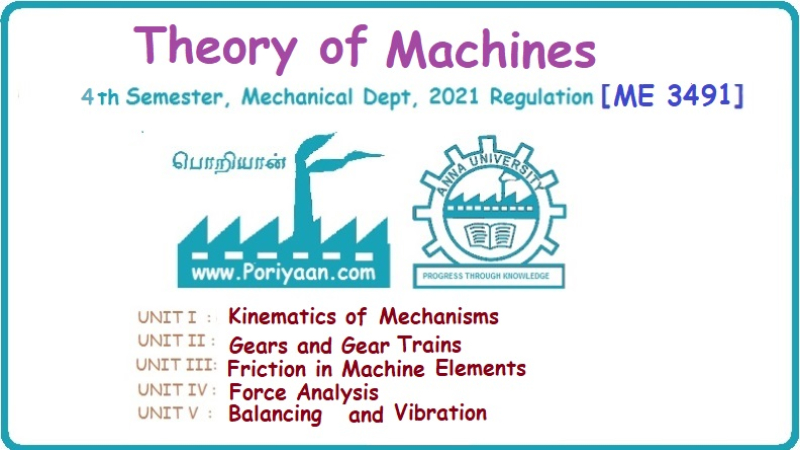Theory of Machines: Unit III: Friction in Machine Elements
flat pivot bearing (or foot step bearing)
Friction in Machine Elements - Theory of Machines
Consider a flat pivot (also known as foot step bearing) shown in Fig.6.18.
FLAT PIVOT BEARING (OR FOOT STEP BEARING) Consider a flat pivot (also known as foot step bearing) shown in Fig.6.18. Let W = Axial thrust or load on the bearing, R = Radius of the pivot, p = Intensity of pressure between the rubbing surfaces, μ = Coefficient of friction between the rubbing surfaces, and T = Total frictional torque. Total torque required to overcome the friction for uniform pressure condition is given by Total torque required to overcome the friction for uniform wear condition is given by Power lost in overcoming friction is given by where N = Speed of the shaft in rpm, and ω = Angular speed of the shaft in rad/s. Example 6.14 A vertical shaft of 100 mm diameter rotating at 150 rpm rests on a flat end footstep bearing. The shaft carries a vertical load of 15 kN. The coefficient of friction is 0.05. Estimate the power lost in friction assuming (i) uniform pressure and (ii) uniform wear. [A.U., Nov/Dec 2009] Given data: D = 100 mm or R = 50 mm = 0.05 m; N = 150 rpm; 15 × 103 N; W = 15 kN = 15 × 103 N; μ = 0.05. Solution: ω = 2πN/60 = 2π (150)/60 = 15.71 rad/s (i) Power lost in friction, assuming uniform pressure: We know that the total frictional torque for uniform pressure condition, (ii) Power lost in friction, assuming uniform wear: We know that the total frictional torque for uniform wear condition,
1. Considering Uniform Pressure

2. Considering Uniform Wear

3. Power Lost in Overcoming Friction



Theory of Machines: Unit III: Friction in Machine Elements : Tag: : Friction in Machine Elements - Theory of Machines - flat pivot bearing (or foot step bearing)
Related Topics
Related Subjects
Theory of Machines
ME3491 4th semester Mechanical Dept | 2021 Regulation | 4th Semester Mechanical Dept 2021 Regulation
